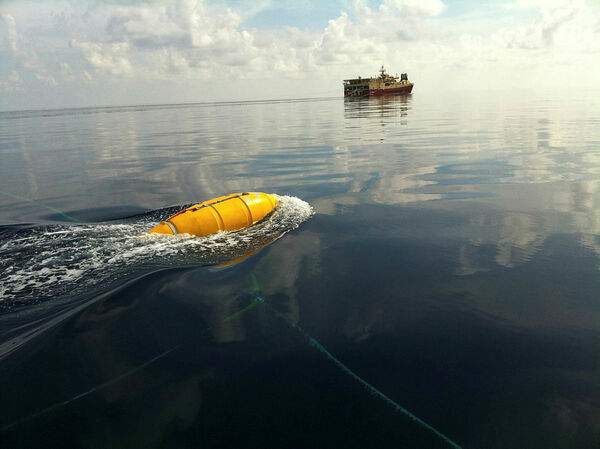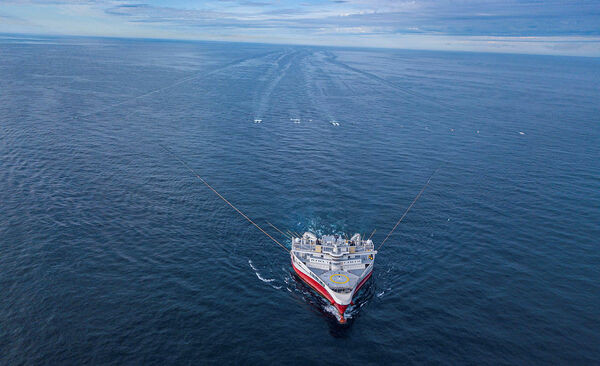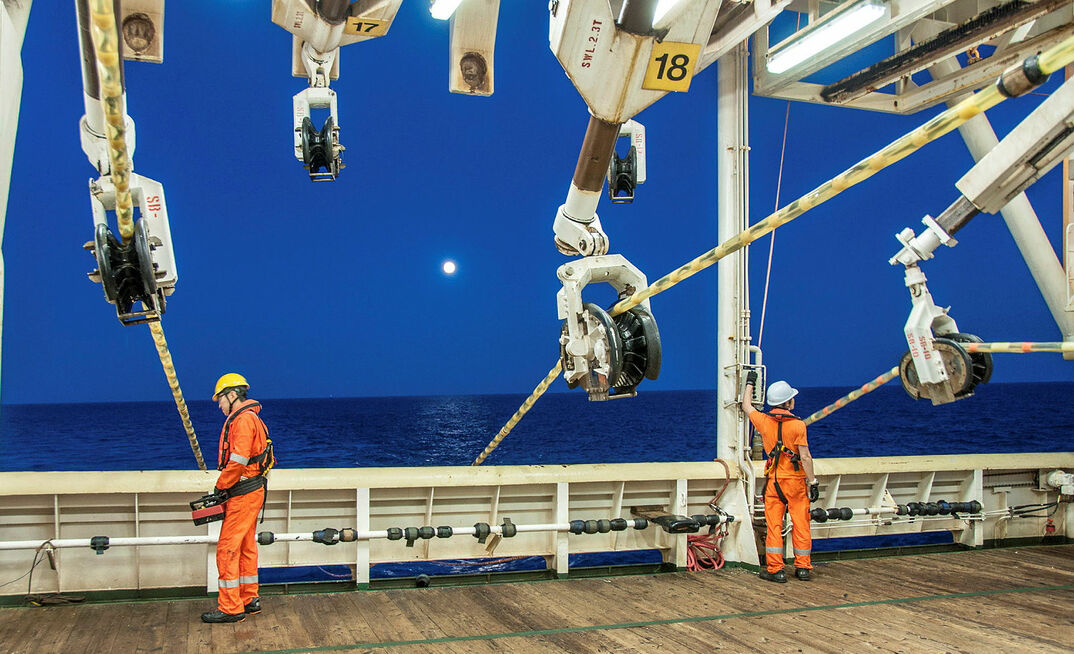By Nikki Martin, President and CEO of EnerGeo Alliance
Public and political discussions often claim that policy and societal decisions on the future of energy and the future of our planet must be grounded in science. I agree. When it comes to decisions on how to harness Australia's natural resources and energy potential, that must include geoscience.
Geoscience work typically involves a seismic survey or imaging of the subsurface to understand the ocean floor and what lies beneath it.
These surveys are as critical for identifying potential resources of petroleum and natural gas as they are for siting alternative energy projects such as offshore wind turbines and wave energy infrastructure and identifying suitable subsurface carbon storage locations.
YOU MIGHT ALSO LIKE

Low-risk technology key to developing virtually any energy project
A low-risk and widely used technology, geoscience surveys are the critical first step in developing virtually any energy project. That is why one of the slogans of EnerGeo Alliance, the global trade alliance for the energy geoscience industry, is "Making Energy Possible."
Seismic surveys have been used for decades in Australian waters and around the world with no evidence of harm to the marine environment, yet in recent years environmental groups set on ending natural gas production have repeatedly attempted to contest that fact.
While the Federal Court recently found that academics and activists associated with these groups had ‘confected' evidence and misled Traditional Owners to oppose a gas project offshore the Northern Territory, their propagation of mistruths successfully delayed this and other critical energy projects for far too long.
In light of these recent delays, we are pleased to see the Australian Government moving to clarify rules on consultation requirements for major energy projects. EnerGeo Alliance, its members and industry partners look forward to participating in this important work.
We know that there are many who have genuine questions and concerns about our activity, and we are committed to responding to them. But false and exaggerated claims too often distort public discussion and do nothing to inform the community on important processes to support critical decisions about our energy supply.

Geoscience has strong history in Australia
The fact is the energy geoscience industry is proud of its long and strong track record of operating safely, sustainably, and successfully in Australian waters.
Over 2,000 seismic surveys have been conducted in Australian waters since the 1960s with no evidence of the impacts many opponents have claimed as likely.
The energy geoscience industry operates globally to the highest standards and, in all the jurisdictions that it operates in, it is subject to robust regulation.
Our members only perform activity after extensive consultation with local communities and stakeholders and robust environmental review.
They also implement mitigation measures to protect the marine environment during surveys, including professional marine mammal observers and the use of acoustic monitoring technology.
They respect exclusion zones and events of biological significance, including breeding areas and seasons, migration, and foraging, out of an abundance of precaution for protecting marine life. They also are diligent to ensure our activities do not impact other marine industries.
Some of the world's most successful fisheries coexist alongside petroleum and natural gas activities. These industries can, and do, coexist in Australia and in many other regions worldwide.
Indeed, EnerGeo and its members worked with fisheries peak bodies and government to develop the Guidance framework for seismic and commercial fishing published in 2022.

Since 2006, EnerGeo alongside Australian and global partners have invested over US$50 million to conduct research through the international Sound and Marine Life Joint Industry Programme to improve understanding of any potential impact of sound on marine life.
That important work will continue, but we already know that the volume of the sound produced during seismic surveys is comparable in magnitude to maritime traffic and many naturally occurring sound sources, such as storms, or other marine animals.
Through research conducted in Australia by the Australian Institute of Marine Science we know that seismic surveys have no impact on reef fish and pearl oysters.
The industry is committed to genuine engagement with all stakeholders impacted by, or with a genuine interest in, our activity.
To this end, EnerGeo Alliance, together with partners, recently launched the ‘Making Energy Possible' initiative. Through this platform, we aim to communicate why energy geoscience surveying is critical to the delivery of energy around the world.
Decades of experience show that energy geoscience surveys are conducted safely and sustainably.
The energy evolution relies on access to energy geoscience data, and this technology is essential for making informed decisions about the future of energy and our planet. It is too important to be delayed by attempts to counter a trustworthy track record and good science with misinformation and bad science.
About EnerGeo Alliance
Founded in 1971, EnerGeo Alliance is the global trade alliance for the energy geoscience industry. EnerGeo Alliance and its member companies span more than 50 countries, and together oversee the safe discovery, development, and delivery of mainstay sources of energy, alternative energy and low-carbon energy solutions that meet the growing world's needs.
























